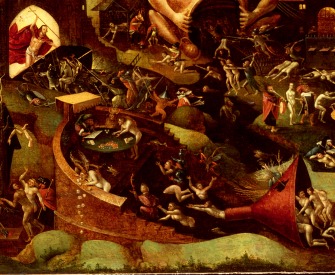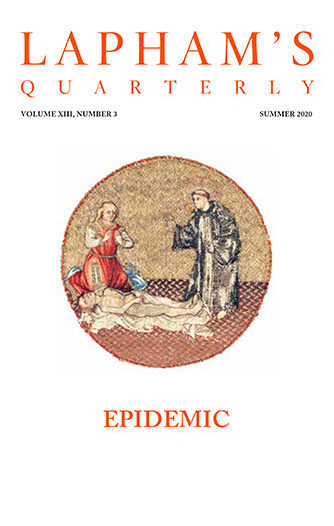At night comes counsel to the wise.
—Menander, 300 BCLate Shift
Roaldus Richmond talks to the night man.
“On a job like this in a town this size,” he said, “I guess you get to know about everybody. Maybe you get to know too much about most of ’em. All different kinds of people come in to eat. You see some funny ones all right.”
He was a dapper little figure in his white apron, leaning on the counter of the diner, a white cap cocked on his sleek head. He had probably been good-looking once. Now his skin was pallid, and there were dark pouches sagging under his eyes. Being night man in an all-night lunchroom was not conducive to health. But his manner was cheerful and self-assured.
“In here we got different batches of customers every night. What I mean, there’s a crowd after the first show of movies, another after the second show. Then there’s a gang after midnight when the bars close, and after them come the people who’ve really been out on a late party. Besides, there’s the people driving through late and early mornings, tourists and truck drivers, all like that. Did you ever notice how people hate to go to bed? They’ll hang around and hang around, drink coffee and smoke cigarettes and talk, hating to go home and go to sleep. I notice that a lot on this job. It’s a funny thing, too. I suppose some of them have reasons for not going home. Maybe they’re scared of getting hell from their wives or mothers. But I think most of them just hate to go home to bed. It’s kind of like dying, I guess, sleeping is. They just naturally hold back from it. They hang around the street or a place like this, doing nothing, just hanging around talking. Some guys have wives waiting, some have just an empty room and an empty bed. I don’t know which is the worst, honest I don’t. I’m still single.
“I was born in Vermont, but I’ve kicked around the country quite a lot. I worked in Jersey City awhile, then I was in New York. I did short-order cooking, I worked in a grocery store and a shoe store, I tried selling, and I drove a taxi. I tended bar in Boston, but I got to drinking too much, so I quit. It’s hard for me to stand drunks when I’m sober. I used to sneak a lot of drinks. When I saw it was getting me I quit. Sure, we get drunks in here, too, and once in awhile there’s a fight. This is quite a town for scrapping. These foreigners are quick-tempered, and plenty of Yankees are pretty wild and tough, you know. This town’s got a kind of tough rep anyway—but it’s a good town. At least it’s alive, and that’s more than most Vermont towns are.
“I was out in Detroit working in a Ford plant for awhile, too. That’s a hard-boiled burg all right. The Purple Gang was operating out there then, and they bumped off plenty of guys. They killed seven or eight Checker cabdrivers in one week. I don’t know what they had on them, but they knocked ’em off right and left that one week. Lot of tough mugs in Detroit, lot of whorehouses and tough joints. It was too goddamn hard working for Ford. That assembly-line stuff is a son of a bitch, I’m telling you. That’s nothing but slavery. I quit and went to work in a White Tower place, you know the nickel-hamburger White Towers. That’s where I got onto this all-night business. It ain’t so bad when you get used to it. I kind of like it. I guess I always liked night better than day anyway. When I was a kid, I used to frig around all night, and my folks were always giving me hell for it. It’s damn tough on the old folks, sitting home worrying what kind of trouble their kids are getting into tonight.
“I came home when my mother died. That was five, six years ago. I grabbed a plane from Detroit, trying to get here in time—but I was too late. I’ve been here ever since, and I haven’t missed many nights back of this counter.
“Of course, you get a couple nights off a week, and if you ever want to get off for something special, one of the other boys will work for you. There’s only two of us on at night, and sometimes we’re rushed like hell. You know how they all come at once, in bunches. Sometimes the nights are goddamn long, too. But the pay is pretty good, and we get our board. We eat good here, I’m telling you. Still, a guy gets sick of always eating in the same place, especially the same place you work at. But what the hell don’t you get sick of in this world?
“I don’t know about the war. Well, I was too young for the last one, but I’ll get the call this time. Maybe not the first call, but I’ll get it sooner or later. I always wanted to go to Europe, but I’m not crazy to go over just to get blown apart. Some of the single guys are kidding about getting married right away to get out of it. Lots of guys have done it already. But what the hell, if I have to go I’ll go, just like my uncles did last time. One of them died in a German prison camp. The other one has been drinking himself to death ever since. I’ve heard him at night when he’s dreaming. It wasn’t nice to hear either.
“Everything’s war talk, war news, war. They don’t even talk about granite now, or sports, Joe DiMaggio or football. It’s all the war.
“And everybody’s drinking harder than ever, seems to me. I’ve noticed it in here. They go get plastered, blind drunk. That’s the war. And at Tunbridge Fair, they were drunk by the thousand. Of course, they always did that before. But everywhere they’re hitting it harder than ever. The war reaches over here, way up into Vermont. Well, there’s too many people and too few jobs. If this one gets bigger, it’ll take care of that. Anyway, I don’t know as I want to spend all my life behind this goddamn counter. I got no folks left to worry about me, no wife and kids to leave. And I don’t think the girls I go around with would die of broken hearts or anything, the way I used to think they would.
“Yes, sir, you said it, boy. Who wants to live forever? Okay, coming right up. Two dogs with mustard and two coffees.”
Roaldus Richmond
From the Federal Writers’ Project’s Folklore Project. During the Great Depression, novelists Mari Tomasi and Roaldus Richmond—who also wrote pulp fiction under the name Roe Richmond—traveled around Barre, Vermont, collecting stories for the Works Progress Administration, mostly about the miners and immigrants working in the area. Fifty-five of their 120 interviews were collected in the 2004 book Men Against Granite; two years later a play based on their work called Stone premiered in Montpelier.

